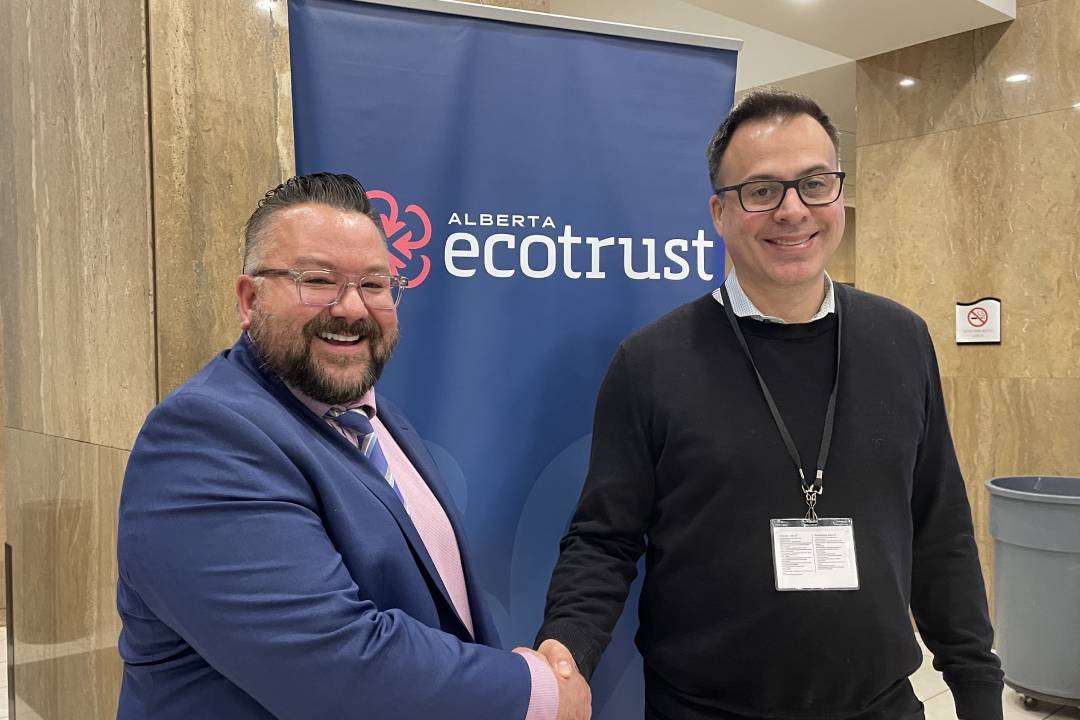
Partnership delivers energy retrofits to multi-unit buildings
By
Shayne Giles
Two west Edmonton residential buildings with a total of 165 units are receiving energy retrofits as part of a new partnership between the Alberta Ecotrust Foundation and Toronto's Efficiency Capital.
"Seventy-eight percent of the buildings you see here today are still going to be here in 2050," said Matthew Zipchen, president of Efficiency Capital, during an announcement held during the Alberta Energy Efficiency and Innovation Summit on June 20. "That means that we need to retrofit almost every single one of them to be net zero by 2050."
The partnership aims to help Edmonton and Calgary meet their goals to achieve net-zero greenhouse-gas emissions by 2050. Across Canada, residential housing emissions account for 13% of the total.
"Apartment owners, condominium boards, affordable housing providers, they often don't have access to energy management services in the same way larger building owners or portfolio owners might," said Mike Mellross, program director for the Alberta Ecotrust Foundation, noting that it can be hard for such groups to source capital rebates or other funding options.
Efficiency Capital leverages strategic partnerships with banks, impact investors, community foundations, and other organizations to access project funding for the retrofits. Between Efficiency's funding platform and Alberta Ecotrust's climate innovation fund, there's more than $140 million to invest in such projects.
Retrofitting a multi-unit residential building might include replacing windows or elements of the exterior building envelope like cladding or insulation. It can also just involve updating electrical systems and appliances like washers or dryers. For a project to meet Alberta Ecotrust's eligibility requirements, buildings should have a potential carbon reduction of at least 30%.
The retrofit process can be an easier sell for long-term building owners, who see the value in reducing carbon emissions and costs over a series of decades, than it is for building owners who purchase and sell properties often, said Zipchen.
"But there's a lot of tools and incentives in the marketplace that we're getting them to start pricing in and thinking about the climate-change impact, whether it's the carbon tax, whether it's preferred mortgage pricing because you have GHG reductions," he said.
The owner of the west Edmonton buildings reached out to Alberta Ecotrust as part of a retrofit accelerator program. The two residences were built in 2004 and share a property. For the most part, tenants were able to stay put during the retrofitting process.
Photo: Mike Mellross of the Alberta Ecotrust Foundation and Matt Zipchen of Efficiency Capital are working to bring affordable climate solutions to multi-unit buildings. (Shayne Giles)


